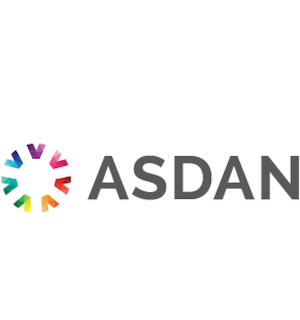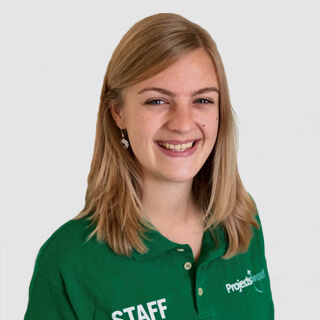I arrived at the airport at four in the morning and Nairobi was already buzzing as people had started walking to the city for work. I took a matatu (the Kenyan public transport/minibus) with my volunteer coordinator to Nakuru. I was given my induction here and I was completely lost among all the pedestrians rushing back and forth along the streets. We somehow found the correct matatu to take us to Jogoo, the village close to the Soysambu Conservancy. The volunteer house is in a stunning location, in the middle of the countryside. Already on my first day, I had seen gazelles, impalas, and zebras just outside our garden. And later on, I tried my first Kenyan meal - Chapatis.
My Conservation Project at the Soysambu Conservancy
The main aim of the project was to monitor the local giraffe population. They were all part of the Rothschild’s sub-group which is endangered. This involved taking photographs of the giraffes and identifying the individuals in the database. We took notes of the sex, age group, group size, habitat and activity of the giraffes. For me, this was the most memorable part of the project and also the reason I chose it. Seeing these animals up close was truly inspiring. Other aims of the project included lion monitoring, building a school kitchen, counting the wetland bird population and de-snaring. De-snaring was the most popular activity among the volunteers because you see the results of your work straight away. The snares can leave nasty injuries on the animals so it is our job to remove them. One day we got together with a large group from the local community including nurses and hotel workers as well as rangers and conservation workers. We went for a walk through the conservancy and picked up as many live snares as we could find. The final count was 38 live snares and 14 broken snares. This walk would have saved many of Soysambu’s zebras, waterbuck, and elands. After the walk, the group met at another location on the conservancy to share a meal; Kenyan goat stew and ugali. To be honest it wasn’t the nicest stew in the world but the surroundings, people, and atmosphere of the day made it a meal to remember.
Travelling around Kenya during my placement
During my six week placement, I had many opportunities to travel around Kenya. One of my most notable trips was my weekend in Maasai Mara game reserve which is one of Kenya’s most famous wildlife parks. It was here where I saw many African animals which we don’t have in Soysambu, such as elephants and leopards. On top of this, we got to meet some of the traditional Maasai people and had a tour around their traditional mud huts. Other weekend trips included a visit to Hell’s Gate National Park (which you may recognise as the scenery which inspired The Lion King), Lake Nakuru where you can see white rhinos, and the Thomson Waterfalls. There was plenty of time to travel around Kenya during the placement. Most of the volunteers I met managed to travel over weekends and maybe take one or two days off work to visit somewhere.
My accommodation in Soysambu
I lived in a huge house with all the other volunteers which was great fun. We also had a large garden which separated the house from the conservancy.
The staff were easy to get on with, the project was fun and rewarding, the meals were delicious and the activities during the weekends were entertaining. I felt like the staff really wanted you to have a good experience, helping to organise weekend excursions for you and coming with you to the city or the local town. If I had the chance I would do it again in a heartbeat, and I would change nothing.

Are you interested in joining this project?
If so, one of our experts can help.
Contact Us on:
This is a personal account of one volunteer’s experience on the project and is a snapshot in time. Your experience may be different, as our projects are constantly adapting to local needs and building on accomplishments. Seasonal weather changes can also have a big impact. To find out more about what you can expect from this project we encourage you to speak to one of our friendly staff.
Our accreditations

















